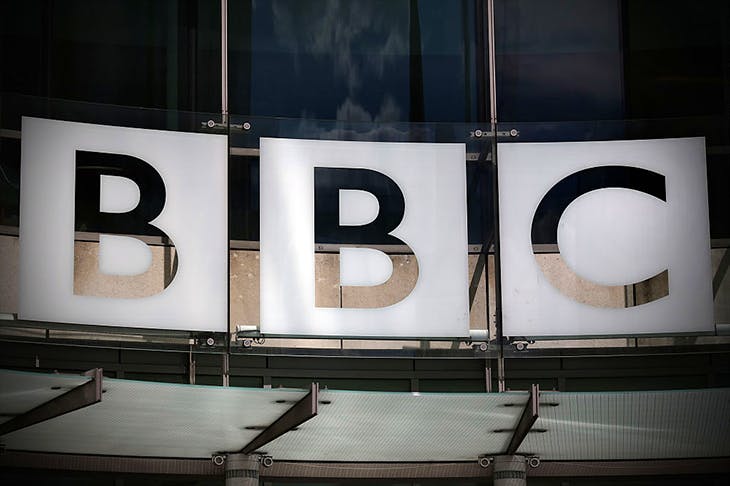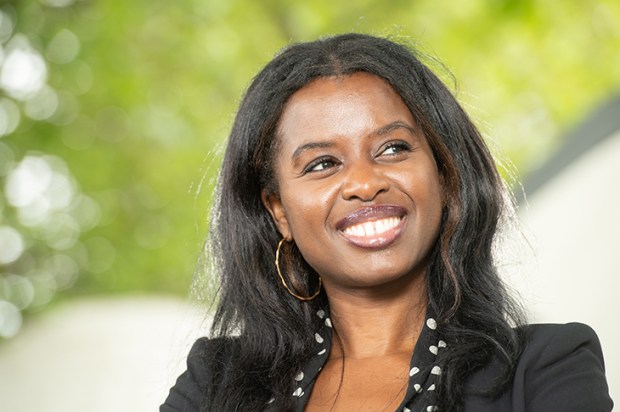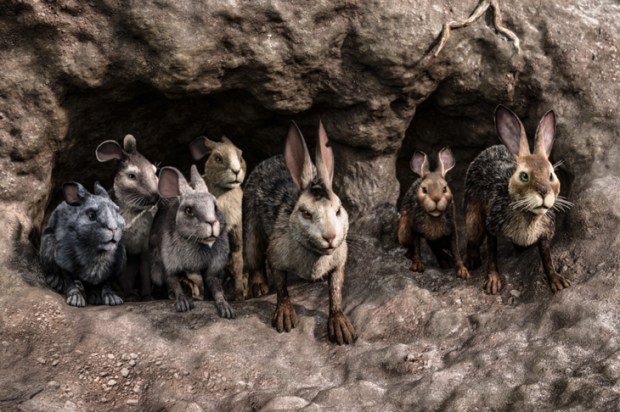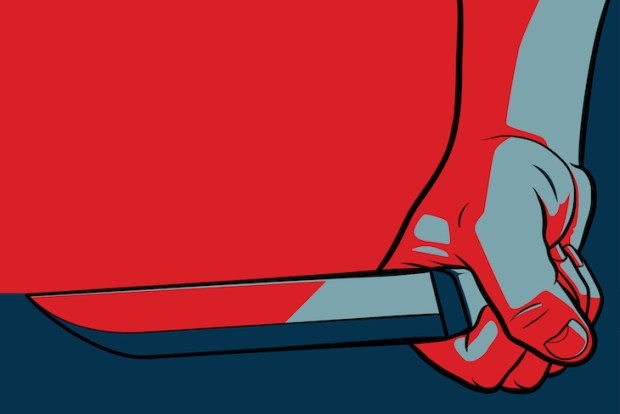There’s one thing that bothers me a lot about the letter sent by ‘more than 70’ MPs to the director-general of the BBC complaining about bias in its coverage of the Brexit debate. There are 650 MPs in the House of Commons, of whom 330 are Conservative. So does this mean that more than 570 of our elected representatives, including the vast majority of Tories, think the BBC is doing a bloody good job and is an exemplar of impartial reporting? If so, I suspect they have been secretly lobotomised — perhaps by members of the BBC’s impeccably fair and impartial editorial board. In the dead of night. Silently, without remorse. Chloroform, a hacksaw, a scalpel.
My guess is that the DG, Sir Tony Hall, will not give a monkey’s about the letter, for the reasons I’ve outlined above. But even if it had been signed by all 650 MPs, he would also be sanguine, hunkered down behind that familiar defence of: ‘If all sides think we’re biased then we must be getting it right’ — a self-justifying falsehood if ever there was one. We live in an age of fatuous petitions and round robins and most of these are best ignored. Especially those which come from a very small minority indeed of our politicians. Hall will probably dispatch some overpaid, half-witted, oleaginous middle-managing BBC gimp to placate the complainants while assuring them that they are wrong in every respect and that, within the BBC, everything is for the best in this best of all possible worlds. As it always is.
And yet the complainants are right, surely. Even the pre-referendum coverage, generally praised for its lack of bias, occasionally betrayed the BBC’s pro-EU mindset and its astonishment that anyone might contemplate voting Leave. After the referendum, Radio 4’s PM programme ran a regular feature called ‘Brexit Street’, in which a reporter was dispatched to sound utterly nonplussed by the troglodytic inhabitants of a road in Stockton-on-Tees that had been firmly for ‘out’. Weird, peculiar, uneducated people, was the gist. And yet, as we know, Brexit Street was simply a part of Brexit Town. And Brexit Town was just a part of Brexit Region. And Brexit Region was in Brexit Country.
The horror when this unexpected eventuality dawned upon the BBC was one of my greatest pleasures of last year. The presenters and reporters looked magnificently shocked on 24 June, as if they’d all been touched up or, in some cases, perhaps violated by a gibbon.
Since then the gloves have come off. Encouraging financial news — of which there has been a great deal — is reported always with baleful caveats: just you wait, you thick bigots. Gloomy financial news — by and large, just the falling of the pound — leads the news programmes with Armageddon headlines. And, as the letter to MPs rightly asserts, the BBC is never happier than when finding someone who voted Leave and now regrets it — despite the fact that the polls show the country has not remotely changed its mind.
It was pretty much ever thus with the BBC. I may have told you before about the comment made to me when I was editor of the Today programme about complaints from Eurosceptics which claimed our coverage was guilty of bias. I had been inclined to take the complaints very seriously. But a senior BBC apparatchik said to me: ‘What you have to understand, Rod, is that these people are all mad.’ That was the BBC’s controller of editorial policy, since you asked.
The BBC Brussels office, meanwhile, was implacably pro-EU: stories of bureaucratic profligacy and incompetence were routinely knocked down. Its impartial and fair-minded chief correspondent wrote a book about the populist movements then springing up across Europe — Pim Fortuyn in the Netherlands and the Front National in France, to quote two examples. The book was called Preachers of Hate. None of this was ever queried by the Beeb bosses.
In fairness, this was a long time ago, around 2002, but stuff hasn’t changed at New Broadcasting House. I was told that not a single person on Newsnight had voted Leave — although subsequent investigations rounded this up to ‘one’. The BBC is deeply, institutionally biased towards a soft-liberal, naïve, middle-class view of the world, especially with regard to immigration, Europe, Islam, homosexuality (yes, they manage to square that tricky little circle in their own minds) and all race issues.
But the corporation is at its most obviously biased away from the news programmes, which at least have to genuflect towards a notional impartiality. None of the other programmes — such as Countryfile, The Food Programme or The Archers — are required to follow the guidelines. And they certainly don’t. Give a listen to The Food Programme just once and tell me if you think the presenters and producers have ever been near a McDonald’s, unless it was to daub it in paint.
The bias is so evident, so obvious, so blinding that it sometimes obscures the good things the BBC does and the baby steps it seems to be making towards impartiality. For instance, there was a recent documentary on (supposedly) gender dysphoric children that actually shocked me with its even-handedness. Another documentary, fronted by the excellent Adrian Chiles, revealed that the Leave voters in his home manor of the West Midlands were actually not unthinking bigots at all. And check out the BBC’s China editor Carrie Gracie — superb reporting and analysis day after day. There is not a better foreign correspondent alive, I think.
Elsewhere, though, there is too much unthinking, liberal mush. As John Birt once pointed out, the BBC found it very difficult to come to terms with Margaret Thatcher’s victory in 1979. It is having precisely the same problems right now — and, sadly, that well-meant letter won’t change anything.
Got something to add? Join the discussion and comment below.
Get 10 issues for just $10
Subscribe to The Spectator Australia today for the next 10 magazine issues, plus full online access, for just $10.
You might disagree with half of it, but you’ll enjoy reading all of it. Try your first month for free, then just $2 a week for the remainder of your first year.





![[GETTY IMAGES]](https://www.spectator.com.au/wp-content/uploads/2019/02/GettyImages_3288778.jpg?w=620)









Comments
Don't miss out
Join the conversation with other Spectator Australia readers. Subscribe to leave a comment.
SUBSCRIBEAlready a subscriber? Log in